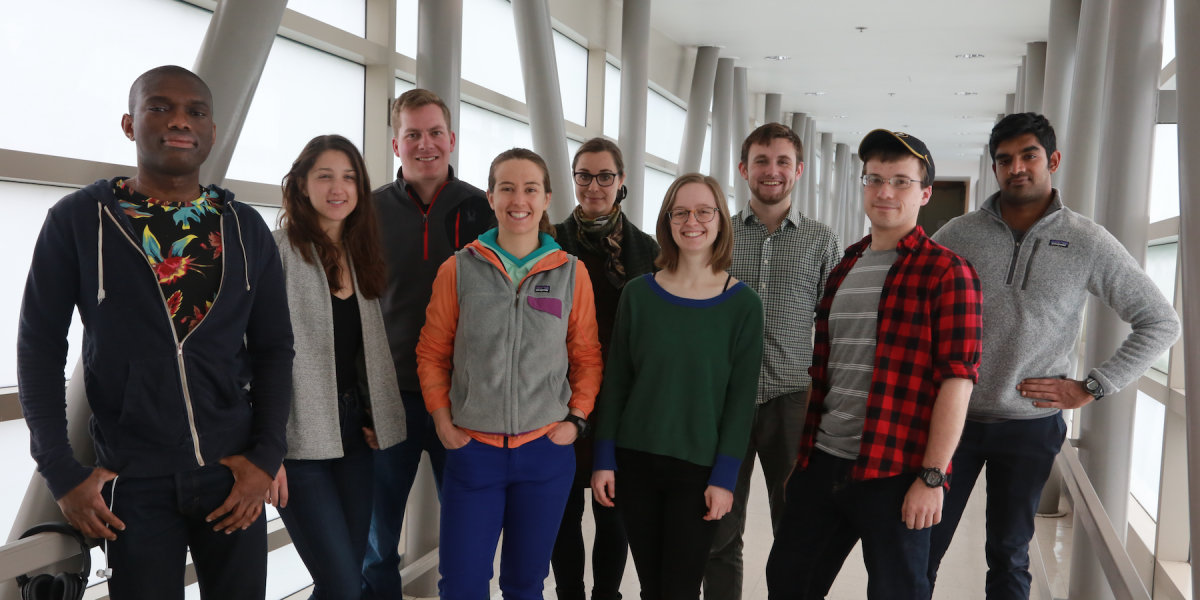MCB has been busy this semester!
Read all about what MCB has been up to lately, from our recent research endeavors to our MCB 30 Alumni Symposuim!
Below are articles from various sources about members of MCB and their research.
MCB has been busy this semester!
Read all about what MCB has been up to lately, from our recent research endeavors to our MCB 30 Alumni Symposuim!
YourChoice Therapeutics, a startup co-founded by MCB Associate Professor Polina Lishko, is developing the first hormone-free birth control for both men and women to be released in 2025.
The contraceptives were first developed in Lishko's lab, which focuses on the mammalian fertilization and molecular physiology of human sperm cells.
Congratulations to MCB Professor Kristin Scott for being elected a Fellow of the American Academy of Arts & Sciences! Scott studies the taste system in fruit flies to understand how sensory information is processed by the brain and linked to behavior.
Congratulations to MCB Professor & Senior Associate Dean of Biological Sciences Richard Harland, who is a newly elected Fellow of The Royal Society of London! Harland is a pioneer in the field of developmental biology whose major contributions to the field include understanding dorsal ventral patterning of the early embryo and the induction and patterning of the neural plate.
On April 11, the MCB Industrial Affiliates Program (IAP) Spring 2019 Symposium brought together industry and academia to offer UC Berkeley scientists at all career stages an opportunity to build direct connections with nine innovative biotechnology companies. The event was a great success, drawing students and postdoctoral scholars from several departments on campus including MCB, IB, Bioengineering, Biophysics, and Comparative Biochemistry. Continue reading >
New research from Assistant Professor of MCB & Physics Hernan Garcia and scientists at New York University characterizes how the pioneer factor Zelda affects a gene's transcriptional output by enriching Dorsal protein activity at enhancer regions of Drosophila DNA during gene activation.
This finding "uncovers the physical parameters that affect gene activation, thus pushing forward our understanding of how genes are regulated in time and space,” according to NYU Biology Professor Christine Rushlow.
Cal Day 2019 is this Saturday, April 13, from 10 AM – 3 PM! Come by VLSB to learn about the MCB major, meet some of our distinguished researchers, tour the laboratory classrooms, and more.
Congratulations to MCB Professor Rebecca Heald, recipient of the 2018–19 Leon A. Henkin Citation for Distinguished Service! This award recognizes faculty with “exceptional commitment to the educational development of students from groups who are underrepresented in the academy.”
On March 28, the MCB Graduate Network and newly-established MCB Wellness Committee partnered to host the first-ever Wellness Symposium for students, faculty, and staff in the MCB Department. The event, held in honor of MCB PhD alum Cris Alvaro, aimed to focus on the importance of de-stigmatizing discussions of mental health in academia and emphasize mental health as an essential aspect of wellness. Continue reading >

Congratulations to the 11 MCB graduate students who have been named Outstanding Graduate Student Instructors! The OGSI Award recognizes GSIs from each department on campus for excellent work in the teaching of undergraduates.